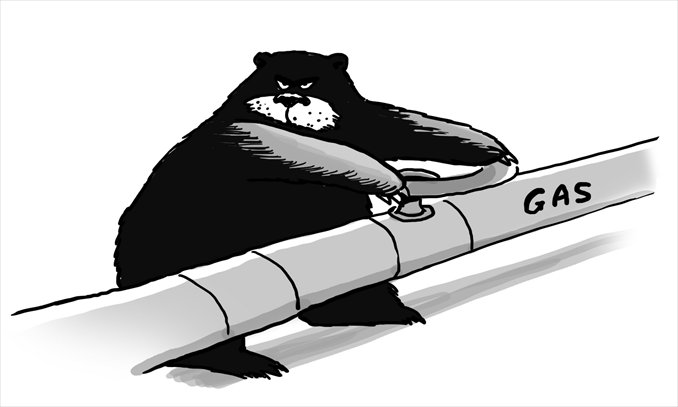Caspian states no closer to resolving issue of division of resources

The year 2012 was not a crucial one for the five Caspian states, Azerbaijan, Russia, Kazakhstan, Turkmenistan and Iran, in settling the legal status of this water basin.
Azerbaijan, Kazakhstan and Russia want to divide the shelf of the Caspian Sea into national sectors with exclusive rights to explore and exploit the riches, while keeping the sea open for navigation.
Turkmenistan, which recently discovered oil in its national sector, also began to slowly change its position to adopt the views of Baku, Astana and Moscow.
Iran remained the only littoral state that heavily opposed any national sector division of the Caspian Sea.
The majority of oil fields in the Caspian Sea were discovered by Azerbaijani oilmen.
After the collapse of the Soviet Union, Azerbaijan became the only country with the experience and equipment to explore and exploit the oil fields.
In 1994, Azerbaijan signed an oil contract, called the Contract of Century, with major oil companies headed by BP. The contract envisioned the exploration of the Azeri, Chirag and Guneshli oil fields located off the Caspian shore.
It is not surprising that Azerbaijan spearheaded the talks on dividing the Caspian Sea based on the principles of continental shelf division. Currently, the status does not affect the Azerbaijani pace of oil and gas field exploitation.
However, the undecided status of the Caspian Sea is affecting construction of pipelines across the water.
As for Kazakhstan, in the early stage of its independence, it did not push too much toward division of the Caspian Sea into national sectors.
But after exploring the huge oil and gas reserves in its sector of the Caspian Sea, Astana began to unify positions with Azerbaijan.
For a long time, Turkmenistan sided with Russia or Iran, and even laid claim to Azerbaijani oil fields. Late president Saparmurat Niyazov worsened relations between Azerbaijan and Turkmenistan, claiming that Azerbaijan had illegally exploited its oil fields.
Both countries were on the verge of a diplomatic breakup, but sober minds in these countries prevailed.
Currently, Russia purchases Turkmen gas at a low price and resells it to European customers at a much higher price.
Turkmenistan is losing almost 60 percent of its gas value, because it does not have any other means for transporting the gas. A recently constructed gas pipeline to China could be problematic because it passes through two other countries.
Constructing the trans-Caspian pipeline from Turkmen shores to Azerbaijan and connecting to the Azerbaijani system would allow Turkmenistan to sell its gas to Europe at market prices.
Russian policy in the Caspian Sea is controversial in all aspects. Russia favors the sectorial division of the Caspian Sea, but torpedoed a final agreement for a variety of reasons.
A final division of the Caspian Sea into these sectors would allow Kazakhstan, Azerbaijan and Turkmenistan to construct gas and oil pipelines to Europe, bypassing Russia and ending its gas monopoly in Europe.
Russia enjoys keeping the status undecided, so it can intervene between the littoral states in the event a maritime dispute breaks out.
Iran remains the only losing side in the Caspian. If sectorial division prevails, Iran would get the smallest share.
Tehran wants to give each state 20 percent of the sea. In fact, such division benefits both Azerbaijan and Turkmenistan, which have less than 20 percent of the sea share.
Kazakhstan and Russia would be the major losers from such a division. Nevertheless, Azerbaijan is the only country so far that has opposed Iranian expansionist movements, since a future conflict in the Caspian may emerge between these two countries over claims to possession of oil fields.
It is difficult to see the countries resolving the issue in 2013. Moreover, tensions between Iran and Azerbaijan could erupt over the oil fields, prompting major powers to intervene and leading to an escalation of a conflict in the region.
The author is assistant professor and dean of School of International Affairs at the Azerbaijan Diplomatic Academy. opinion@globaltimes.com.cn